Hyundai Tucson vs Peugeot 308 - Differences and prices compared
Costs and Efficiency:
Price and efficiency are key factors when choosing a car – and this is often where the real differences emerge.
Peugeot 308 has a minimal advantage in terms of price – it starts at 29200 £, while the Hyundai Tucson costs 30600 £. That’s a price difference of around 1397 £.
Fuel consumption also shows a difference: Hyundai Tucson manages with 1 L and is therefore convincingly more efficient than the Peugeot 308 with 2.30 L. The difference is about 1.30 L per 100 km.
As for range, the Peugeot 308 performs convincingly better – achieving up to 450 km, about 380 km more than the Hyundai Tucson.
Engine and Performance:
Power, torque and acceleration say a lot about how a car feels on the road. This is where you see which model delivers more driving dynamics.
When it comes to engine power, the Hyundai Tucson has a clearly perceptible edge – offering 252 HP compared to 195 HP. That’s roughly 57 HP more horsepower.
In acceleration from 0 to 100 km/h, the Peugeot 308 is slight quicker – completing the sprint in 7.60 s, while the Hyundai Tucson takes 7.90 s. That’s about 0.30 s faster.
In terms of top speed, the Peugeot 308 performs barely noticeable better – reaching 225 km/h, while the Hyundai Tucson tops out at 204 km/h. The difference is around 21 km/h.
There’s also a difference in torque: Hyundai Tucson pulls distinct stronger with 379 Nm compared to 300 Nm. That’s about 79 Nm difference.
Space and Everyday Use:
Whether family car or daily driver – which one offers more room, flexibility and comfort?
Seats: offers more seating capacity – vs .
In curb weight, Peugeot 308 is minimal lighter – 1453 kg compared to 1542 kg. The difference is around 89 kg.
In terms of boot space, the Hyundai Tucson offers evident more room – 620 L compared to 412 L. That’s a difference of about 208 L.
In maximum load capacity, the Hyundai Tucson performs clearly perceptible better – up to 1799 L, which is about 476 L more than the Peugeot 308.
When it comes to payload, Hyundai Tucson minimal takes the win – 545 kg compared to 503 kg. That’s a difference of about 42 kg.
Who wins the race?
The Hyundai Tucson proves to be offers a more balanced package and therefore becomes our DriveDuel Champion!
Hyundai Tucson is the better all-rounder in this comparison.
 @ Hyundai Motor Company
@ Hyundai Motor Company
Hyundai Tucson
Costs and Consumption
View detailed analysis
Engine and Performance
View detailed analysis
Dimensions and Body
View detailed analysis
Hyundai Tucson
Hyundai Tucson marries bold, sculpted looks with a clever, roomy cabin that feels smarter than its price tag suggests. It's composed on the road, easy to live with day-to-day, and a sensible choice for buyers who want SUV style without the showroom theatrics.
details @ Hyundai Motor Company
@ Hyundai Motor Company
 @ Hyundai Motor Company
@ Hyundai Motor Company
 @ Hyundai Motor Company
@ Hyundai Motor Company
 @ Hyundai Motor Company
@ Hyundai Motor Company
 @ Hyundai Motor Company
@ Hyundai Motor Company
Peugeot 308
The Peugeot 308 brings a sleek, feline profile and an unexpectedly upscale cabin, with clever packaging and materials that feel a touch more premium than you might expect. It’s composed on the road, easy to live with for daily life, and a smart choice if you want a stylish hatch that still behaves when the road gets interesting.
details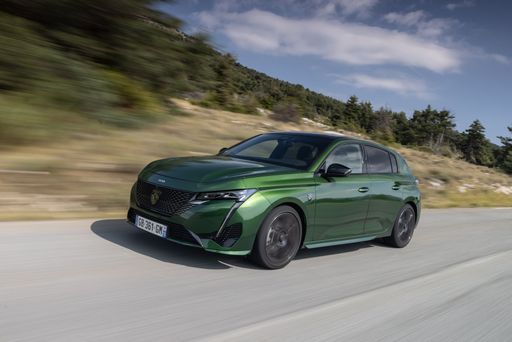 @ Peugeot / Stellantis Media
@ Peugeot / Stellantis Media
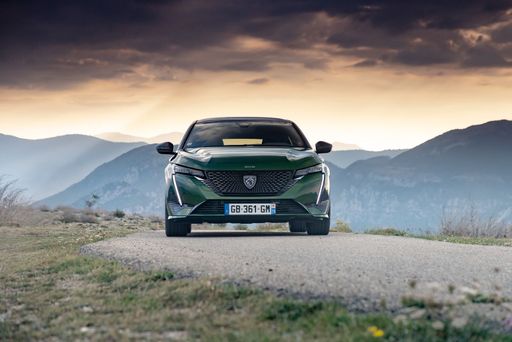 @ Peugeot / Stellantis Media
@ Peugeot / Stellantis Media
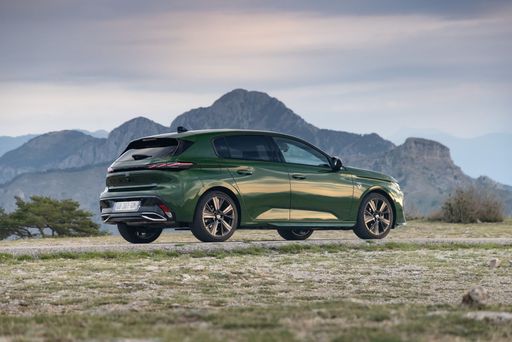 @ Peugeot / Stellantis Media
@ Peugeot / Stellantis Media
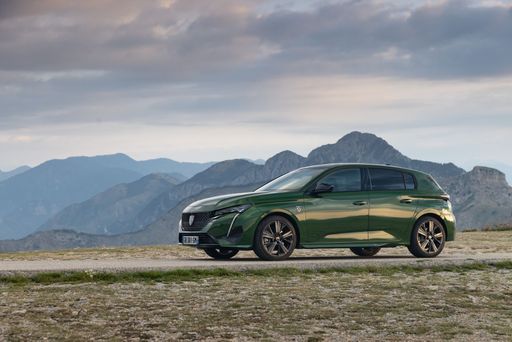 @ Peugeot / Stellantis Media
@ Peugeot / Stellantis Media
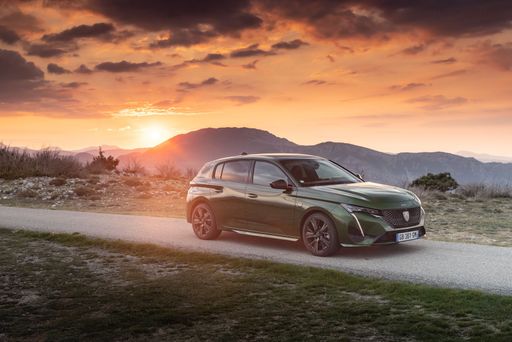 @ Peugeot / Stellantis Media
@ Peugeot / Stellantis Media
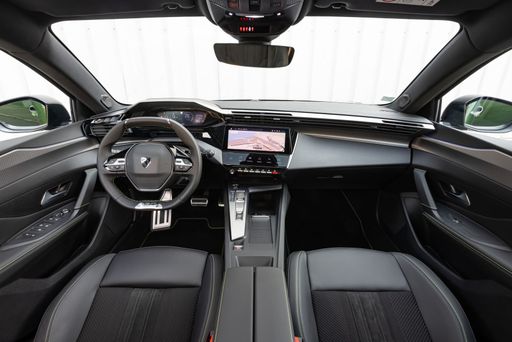 @ Peugeot / Stellantis Media
@ Peugeot / Stellantis Media
 @ Hyundai Motor Company
@ Hyundai Motor Company
|
 @ Peugeot / Stellantis Media
@ Peugeot / Stellantis Media
|
|
|
|
Costs and Consumption |
|
|---|---|
|
Price
30600 - 46300 £
|
Price
29200 - 42600 £
|
|
Consumption L/100km
1 - 7.6 L
|
Consumption L/100km
2.3 - 5 L
|
|
Consumption kWh/100km
-
|
Consumption kWh/100km
15.60 kWh
|
|
Electric Range
64 - 70 km
|
Electric Range
78 - 450 km
|
|
Battery Capacity
-
|
Battery Capacity
0.40 kWh
|
|
co2
22 - 172 g/km
|
co2
0 - 129 g/km
|
|
Fuel tank capacity
42 - 54 L
|
Fuel tank capacity
42 - 52 L
|
Dimensions and Body |
|
|---|---|
|
Body Type
SUV
|
Body Type
Hatchback
|
|
Seats
5
|
Seats
5
|
|
Doors
5
|
Doors
5
|
|
Curb weight
1542 - 1889 kg
|
Curb weight
1453 - 1749 kg
|
|
Trunk capacity
546 - 620 L
|
Trunk capacity
314 - 412 L
|
|
Length
4510 - 4535 mm
|
Length
4367 mm
|
|
Width
1865 mm
|
Width
1852 mm
|
|
Height
1650 mm
|
Height
1438 mm
|
|
Max trunk capacity
1721 - 1799 L
|
Max trunk capacity
1258 - 1323 L
|
|
Payload
523 - 545 kg
|
Payload
430 - 503 kg
|
Engine and Performance |
|
|---|---|
|
Engine Type
Diesel MHEV, Plugin Hybrid, Petrol, Full Hybrid
|
Engine Type
Petrol MHEV, Diesel, Plugin Hybrid, Electric
|
|
Transmission
Automatic, Manuel
|
Transmission
Automatic
|
|
Transmission Detail
Dual-Clutch Automatic, Automatic Gearbox, Manual Gearbox
|
Transmission Detail
Dual-Clutch Automatic, Automatic Gearbox, Reduction Gearbox
|
|
Drive Type
Front-Wheel Drive, All-Wheel Drive
|
Drive Type
Front-Wheel Drive
|
|
Power HP
136 - 252 HP
|
Power HP
131 - 195 HP
|
|
Acceleration 0-100km/h
7.9 - 11.6 s
|
Acceleration 0-100km/h
7.6 - 10.6 s
|
|
Max Speed
180 - 204 km/h
|
Max Speed
170 - 225 km/h
|
|
Torque
250 - 379 Nm
|
Torque
230 - 300 Nm
|
|
Number of Cylinders
4
|
Number of Cylinders
3 - 4
|
|
Power kW
100 - 185 kW
|
Power kW
96 - 144 kW
|
|
Engine capacity
1598 cm3
|
Engine capacity
1199 - 1598 cm3
|
General |
|
|---|---|
|
Model Year
2024 - 2025
|
Model Year
2025
|
|
CO2 Efficiency Class
E, B, F, D
|
CO2 Efficiency Class
C, D, B, A
|
|
Brand
Hyundai
|
Brand
Peugeot
|
What drive types are available for the Hyundai Tucson?
Available configurations include Front-Wheel Drive or All-Wheel Drive.
The prices and data displayed are estimates based on German list prices and may vary by country. This information is not legally binding.
